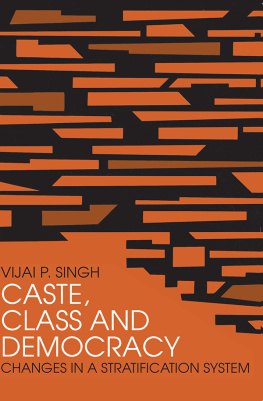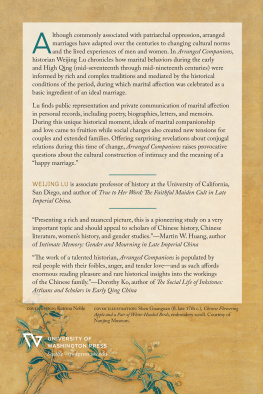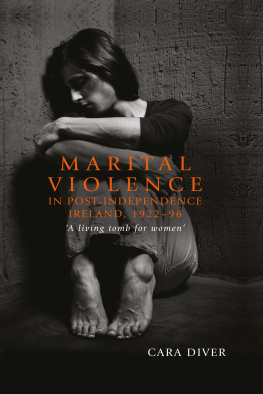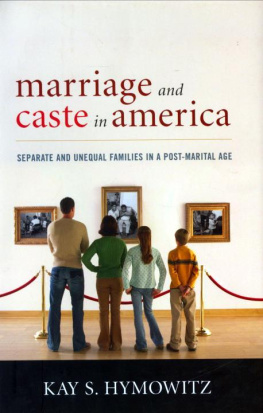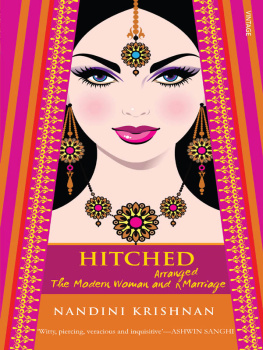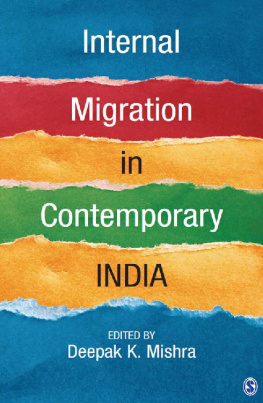MOVING
FOR
MARRIAGE
SUNY series, Genders in the Global South
Debra A. Castillo and Shelley Feldman, editors
MOVING
FOR
MARRIAGE
Inequalities, Intimacy, and
Womens Lives in Rural North India
Shruti Chaudhry
Published by State University of New York Press, Albany
2021 State University of New York
All rights reserved
Printed in the United States of America
No part of this book may be used or reproduced in any manner whatsoever without written permission. No part of this book may be stored in a retrieval system or transmitted in any form or by any means including electronic, electrostatic, magnetic tape, mechanical, photocopying, recording, or otherwise without the prior permission in writing of the publisher.
For information, contact State University of New York Press, Albany, NY
www.sunypress.edu
Library of Congress Cataloging-in-Publication Data
Name: Chaudhry, Shruti, 1982 author.
Title: Moving for marriage : inequalities, intimacy, and womens lives in rural North India / Shruti Chaudhry.
Description: Albany : State University of New York Press, [2021] | Series: SUNY series, Genders in the Global South | Includes bibliographical references and index.
Identifiers: LCCN 2021028918 (print) | LCCN 2021028919 (ebook) | ISBN 9781438485577 (hardcover : alk. paper) | ISBN 9781438485591 (ebook)
Subjects: LCSH: MarriageIndiaUttar PradeshCase studies. | Married womenIndiaUttar PradeshSocial conditionsCase studies. | Uttar Pradesh (India)Rural conditionsCase studies. | Uttar Pradesh (India)Regional disparitiesCase studies.
Classification: LCC HQ670.15.U8 C43 2021 (print) | LCC HQ670.15.U8 (ebook) | DDC 306.810954/2dc23
LC record available at https://lccn.loc.gov/2021028918
LC ebook record available at https://lccn.loc.gov/2021028919
10 9 8 7 6 5 4 3 2 1
For the women of Barampur, who let me into their lives
and shared their stories with meContents
Acknowledgments
T his book is based on my doctoral research, which was supported by the University of Edinburgh College Research Studentship and Edinburgh Global Overseas Research Scholarship. I would like to start by thanking my doctoral supervisors, Patricia Jeffery and Mary Holmes. My work has been enriched immensely by Patricia Jefferys experience of four decades of work in Uttar Pradesh, her insightful comments, and her meticulous attention to detail. Since the completion of my PhD, she has continued to be an informal academic mentor. I constantly turn to her for advice and she has always provided reassurance and support, for which I shall always be grateful. Thanks to Mary Holmes for her optimism and for always having something nice to say. Thanks too for nudging me in the direction of family sociology; it has been a fruitful journey. A special thank-you to Kaveri Qureshi, who has always been so generous with her time. Thanks, Kaveri, for helping me to conceive of a doctoral thesis as a book, for reading drafts, and for directing me to things to read. Most of all, thank you for your friendship. Lynn Jamiesons work on intimacy has provided much inspiration for this book. I feel very lucky to have her as a postdoctoral mentor. I am grateful to several other people who have helped and supported me since I first moved to Edinburgh: Crispin Bates, Hugo Gorringe, Liliana Riga, Lotte Hoek, Michael Rosie, Ross Bond, Steven Sutcliffe, Sumeet Jain, and Wilfried Swenden.
In India, a big thank-you to Indrani Mazumdar and Rajni Palriwala. I am particularly thankful for your support and advice during what was very challenging fieldwork. The idea of this research was planted while working on a project on gender and migration in India. Thanks, Indrani, for giving me the opportunity to work with you on this project. More so, thanks for the many conversations on the personal and the political. Your insights always make me think more deeply about things. The numerous discussions I have had with Rajni Palriwala since my time as a masters student in Delhi have profoundly shaped this work. Thank you for your time, for continuing to read drafts, and for providing feedback. Our conversations, when I was completing work on this manuscript, helped me to sharpen the arguments of this book. I hope this book will live up to your expectations. Thanks, too, to Ravinder Kaur for her interest in my work and for her encouragement and suggestions, which have been valuable.
I am greatly indebted to the women of Barampur who welcomed me into their homes and shared their lived experiences with me. Without them, this book would not have been possible. Thanks are also due to the family whose home I stayed in for the duration of the fieldwork and several others who helped with entry and access in the field.
Thank you to Carl Denig, Ceren engl, Daniel Cetr, Eirik Magnus Fuglestad, Konstantinos Kostagiannis, and Nee Knkolu, for being such wonderful friends. Thanks to Taneesha Devi Mohan for being my companion during the migration project, for pushing me to apply for a PhD, and for helping out with maps and census data. For decades of friendship and unending support, thank you to Reet Lamba and Taniya OConnor.
I am very thankful for the support of my siblings, Anirudh, Priyanka and Smriti and I owe a special thanks to my parents. Thanks ma, for your enormous strength and for always letting me make my own choices. My father had been looking forward to seeing this book published but he passed away before he could see it. He would have read it with great interest.
Sunita Masi, thank you for always being there. Thanks, too, to my mother-in-law, Liz, for being so thoughtful and for being my family in Edinburgh. Daniel, thank you so much for all the small and large acts of kindness, for your patience, your love, and most of all your humor. Thanks for supporting me as I completed the PhD and this book. I have enjoyed sharing it all with you.
Lastly, I would like to acknowledge the publishers that allowed me to rework material from previously published articles. The
Introduction
In my next life, I hope I am not born a woman and if I am, I will not get married.
Sarla, 48
Shd bakws hai [marriage is rubbish]. No one should get married but marriage is zarr [compulsory] since I got married, I have never felt k sah hai [that it is correct/right] par nibhn part hai [but it is a relationship you have to keep].
Jaya, 45
B oth Jaya and Sarla had moved to Barampur village, In the midst of this, the issue also became the subject of academic work that described these as across-region, bride-import, cross-border, cross-region, and long-distance marriages (Ahlawat 2009, 2016; Blanchet 2008; Chaudhry & Mohan 2011; Ibrahim 2018; Kaur 2004, 2010a, 2012; Kukreja 2018a, 2018b; Kukreja & Kumar 2013; Mishra 2016; Mukherjee 2013). These studies note the bringing of brides not only from other regions but also across the border from Bangladesh and Nepal.
This research stemmed from an interest in interrogating the moral panic around the status of trafficked women who became brides in geographically distant and culturally distinct rural communities. Unlike existing studies on the topic, however, it not only makes cross-regional marriage the subject of analysis but incorporates a focus on regional marriage as well. This book is, thus, about the post-marital experiences of women, like both Sarla and Jaya, who




